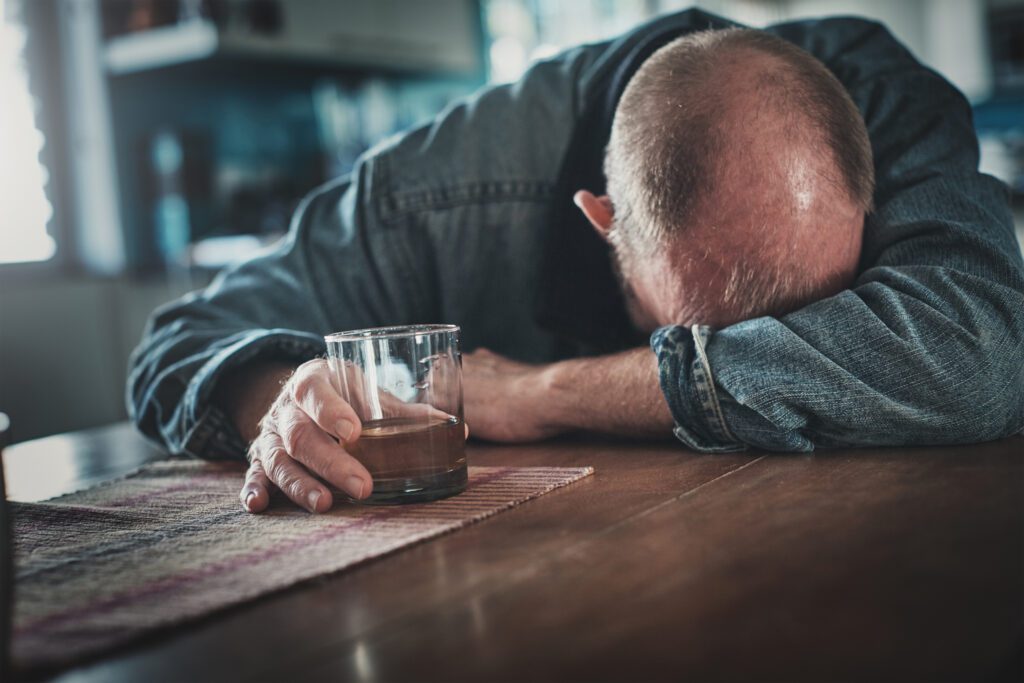For many people, the idea of substance abuse conjures up images of young adults at 3 a.m. closing down a bar. But in reality, this problem often creeps up on the elderly, creating new, potentially chronic health complications. How can you recognize the signs of substance abuse in a loved one and get them the help they need?
There is more than one path to substance abuse for the elderly. It could be a continuation of a lifetime habit, or it can develop almost accidentally when medications interact and create real problems for health and safety. For many, it’s the emotional toll of aging that often requires separation from family, friends, and places that elicit positive memories.
Regardless of its origins, prolonged substance abuse can lead to serious health conditions, and it’s more common in older adults than you might think: Estimates indicate 70% of all older hospitalized patients have alcohol-related problems, as do 50% of those in nursing homes. That’s why it’s paramount to recognize the signs of an issue, so you can identify ways to help.

When it’s someone you love, having a conversation can be the first step in helping them regain their health and return to a better way of life.
Recognizing the Signs
Alcoholism in seniors can present itself in two different ways, the most prevalent being early-onset, which includes those who have been drinking for most of their adult lives. Two-thirds of those struggling with alcohol dependency fall into this category. The remaining third, with late-onset, typically begin drinking heavily later in life, often as a way of dealing with some sort of loss – whether of a loved one, career,
or income.
Prescription drug dependency can develop quickly and cause issues as well. Older adults may take too many pills, forgetting they have already taken one, or they may have multiple prescriptions that don’t interact well. Since 83% of people over 65 take at least one prescribed drug and often have several doctors prescribing different drugs, it’s easy to see how it can become a problem. “Many seniors will abuse prescription drugs unwillingly. When prescribed pain killers and sedatives, some of them will develop tolerance to the effects of those medications, which will lead to physical dependence followed by the behavioral changes of addiction,” explains Dr. Ahmed Ibrahim, a psychiatrist with Parkridge Valley Hospital.


When the two are combined, outcomes are especially dangerous. Alcohol can quadruple the effect of many prescription drugs, at least half of which will include a sedative.
Unfortunately, being able to recognize the signs of drug or alcohol abuse in seniors can be difficult. Dr. Ibrahim explains, “Alcohol or drug abuse may actually mimic symptoms of other medical or mental health disorders, like diabetes, dementia, or depression. This makes it easy for doctors who encounter an older patient to attribute the declining mental or physical health simply to ‘old age’ if they do not specifically ask questions regarding substance abuse.”
Older adults also tend to prefer drinking or using drugs at home rather than in public, and they don’t always have daily duties like going to work or school, where signs might be more apparent to others. There are signs though, such as an increase in falls, changing doctors and pharmacies frequently, hostility, confusion, loss of interest in hobbies, or being secretive in disposing of empty bottles. Keeping a vigilant eye is crucial to determining the best time to intervene.
The Harmful Effects
The reason for concern should be more than judgment over a relative’s lifestyle. “Drug or alcohol abuse among the elderly is particularly dangerous because senior citizens are more susceptible to the deteriorating effects of these substances. That’s because by the time they reach age 65, they have a decreased ability to metabolize drugs and alcohol,” says Dr. Ibrahim. Substance abuse can cause or exacerbate conditions such as liver disease, depression, anxiety, or high blood pressure. Dr. Christopher Harris, director of operations and clinical services for Focus Treatment Centers in Chattanooga, explains, “Some of the symptoms of drug intoxication or abuse can impact the aging population more quickly, and the effects can last longer. Short-term memory loss from alcohol or drug abuse can be more significant; unsteadiness, falling, and slurred speech can all be more pronounced. For example, 14% of all falls in this population can be attributed to psychoactive medication.” The problem is so prevalent, in fact, that older adults are admitted to the hospital for substance-related problems as often as for heart attacks.
Broaching the Subject
Fortunately, of all age groups, older adults have the highest rate for recovery from drug or alcohol dependence, though progress may take time. That success begins with a respectful conversation from a loved one, trusted friend, or even a kindly neighbor. Dr. Harris recommends, “Talk to them, tell them your concerns, and offer support. Encourage them to discuss these concerns with their doctor. Making the physician aware, with the older adult present, can help them understand the gravity of the situation and give them an idea of what to do next.” You should also look into treatments that are available in your area. That way, when they’re open to talking, you can suggest concrete plans.
If they resist the initial conversation, back off and try again later. Be kind and loving, and steer clear of negative labels like “alcoholic” or “drug addict.” If they feel attacked or demeaned, it could send them directly to their drug of choice or postpone the time when they will feel ready to trust you again on the topic.
Treatment Options
There are many programs that can help your loved one. Dr. Harris explains, “Treatment options range from outpatient to hospital detox. Many have found that longer term detoxes in a residential environment are more suitable for someone in this population.” Twelve-step programs are also widely available, and some focus exclusively on seniors. Offer to drive your loved one to a meeting if that makes it easier for them to agree.
Another valuable step is to confirm the appropriate program will accept Medicare or health insurance. A social worker or representative of the treatment center should be able to assist with that, thus side-stepping a legitimate concern on the part of the patient. You want to show your support for their willingness to get treatment, and clearing roadblocks is a great way to do it.
If you have a relative or friend you worry may have developed a health-threatening addiction to alcohol or drugs, talk to a professional about your specific concerns first. Being knowledgeable about dependency can help you approach the subject from a better perspective and arm you with good solutions to share. Al-Anon groups may be beneficial and can put you in a solid emotional place to do the most good.
Remember, it’s never too late to help a loved one enjoy a healthier and happier life!


Dr. Ahmed Ibrahim
Psychiatrist, Parkridge Valley Hospital


Dr. Christopher Harris
Director of Operations and Clinical Services, FOCUS Treatment Centers Chattanooga

